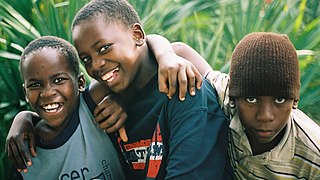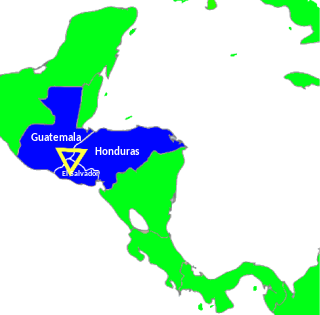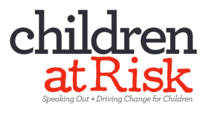The American Academy of Pediatrics (AAP) is the largest professional association of pediatricians in the United States. It is headquartered in Itasca, Illinois, and maintains an office in Washington, D.C. The AAP has published hundreds of policy statements, ranging from advocacy issues to practice recommendations.

Commercial Sexual Exploitation of Children (CSEC) defines the “umbrella” of crimes and activities that involve inflicting sexual abuse on to a child as a financial or personal opportunity. Commercial Sexual Exploitation consists of forcing a child into prostitution, sex trafficking, early marriage, child sex tourism and any other venture of exploiting children into sexual activities. According to the Office of Juvenile Justice and Delinquency Prevention, the lack of reporting the crime and “the difficulties associated with identifying and measuring victims and perpetrators” has made it almost impossible to create a national estimate of the prevalence of Commercial Sexual Exploitation of Children in the United States. There is an estimated one million children that are exploited for commercial sex globally; of the one million children that are exploited, the majority are girls.

Trafficking of children is a form of human trafficking and is defined by the United Nations as the "recruitment, transportation, transfer, harboring, and/or receipt" kidnapping of a child for the purpose of slavery, forced labour, and exploitation. This definition is substantially wider than the same document's definition of "trafficking in persons". Children may also be trafficked for adoption.

Sex trafficking is human trafficking for the purpose of sexual exploitation. It has been called a form of modern slavery because of the way victims are forced into sexual acts non-consensually, in a form of sexual slavery. Perpetrators of the crime are called sex traffickers or pimps—people who manipulate victims to engage in various forms of commercial sex with paying customers. Sex traffickers use force, fraud, and coercion as they recruit, transport, and provide their victims as prostitutes. Sometimes victims are brought into a situation of dependency on their trafficker(s), financially or emotionally. Every aspect of sex trafficking is considered a crime, from acquisition to transportation and exploitation of victims. This includes any sexual exploitation of adults or minors, including child sex tourism (CST) and domestic minor sex trafficking (DMST).

In criminal justice systems, a youth detention center, known as a juvenile detention center (JDC), juvenile detention, juvenile jail, juvenile hall, or more colloquially as juvie/juvy or the Juvey Joint, also sometimes referred to as observation home or remand home is a prison for people under the age of majority, to which they have been sentenced and committed for a period of time, or detained on a short-term basis while awaiting trial or placement in a long-term care program. Juveniles go through a separate court system, the juvenile court, which sentences or commits juveniles to a certain program or facility.

Child abuse is physical, sexual, emotional and/or psychological maltreatment or neglect of a child, especially by a parent or a caregiver. Child abuse may include any act or failure to act by a parent or a caregiver that results in actual or potential wrongful harm to a child and can occur in a child's home, or in organizations, schools, or communities the child interacts with.
Universal preschool is an international movement supporting the use of public funding to provide preschool education to all families. This movement is focused on promoting a global, rather than local, preschool program. The goal is to provide equity across all socioeconomic backgrounds, enabling children to improve their academic and social skills before they attend kindergarten. Universal preschool, funded by the public, would allow more families to send their children to preschool.
Emotional and behavioral disorders refer to a disability classification used in educational settings that allows educational institutions to provide special education and related services to students who have displayed poor social and/or academic progress.

In the Dominican Republic, education is free and compulsory at the elementary level, and free but non-mandatory at the secondary level. It is divided into four stages:
Child migration or "children in migration or mobility" is the movement of people ages 3–18 within or across political borders, with or without their parents or a legal guardian, to another country or region. They may travel with or without legal travel documents. They may arrive to the destination country as refugees, asylum seekers, or economic migrants.

In the United States, human trafficking tends to occur around international travel hubs with large immigrant populations, notably in California, Texas, and Georgia. Those trafficked include young children, teenagers, men, and women; victims can be domestic citizens or foreign nationals.

Nearly half of all refugees are children, and almost one in three children living outside their country of birth is a refugee. These numbers encompass children whose refugee status has been formally confirmed, as well as children in refugee-like situations.

Human trafficking in Texas is the illegal trade of human beings as it occurs in the state of Texas. It is a modern-day form of slavery and usually involves commercial sexual exploitation or forced labor, both domestic and agricultural.
This article summarizes healthcare in Texas. In 2022, the United Healthcare Foundation ranked Texas as the 38th healthiest state in the United States. Obesity, excessive drinking, maternal mortality, infant mortality, vaccinations, mental health, and limited access to healthcare are among the major public health issues facing Texas.

Gender responsive approach for girls in the juvenile justice system represents an emerging trend in communities and courts throughout the United States, Australia and Latin America, as an increasing number of girls are entering the juvenile justice system. A gender responsive approach within the juvenile justice system emphasizes considering the unique circumstances and needs of females when designing juvenile justice system structures, policies, and procedures.

Armenia was admitted into the United Nations on 2 March 1992, following its independence from the Soviet Union. In December 1992, the UN opened its first office in Yerevan. Since then, Armenia has signed and ratified several international treaties. There are 20 specialized agencies, programs, and funds operating in the country under the supervision of the UN Resident Coordinator. Armenia strengthened its relations with the UN by cooperating with various UN agencies and bodies such as the International Monetary Fund, the World Bank, the World Food Programme, and with the financial institutions of the UN. Armenia is a candidate to preside as a non-permanent member of the UN Security Council in 2031.

The Northern American Triangle refers to the Central American countries of El Salvador, Guatemala, and Honduras.
Education in emergencies and conflict areas is the process of teaching and promoting quality education for children, youth, and adults in crisis-affected areas. Such emergency settings include: conflicts, pandemics and disasters caused by natural hazards. Strengthened education systems protects children and youth from attack, abuse, and exploitation, supports peace-building, and provides physical and psychological safety to children. In times of crisis, education helps build resilience and social cohesion across communities, and is fundamental to sustained recovery.
Early childhood education in the United States relates to the teaching of children from birth up to the age of eight. The education services are delivered via preschools and kindergartens.

In 2020, school systems in the United States began to close down in March because of the spread of COVID-19. This was a historic event in the history of the United States schooling system because it forced schools to shut-down. At the very peak of school closures, COVID-19 affected 55.1 million students in 124,000 public and private U.S. schools. The effects of widespread school shut-downs were felt nationwide, and aggravated several social inequalities in gender, technology, educational achievement, and mental health.












